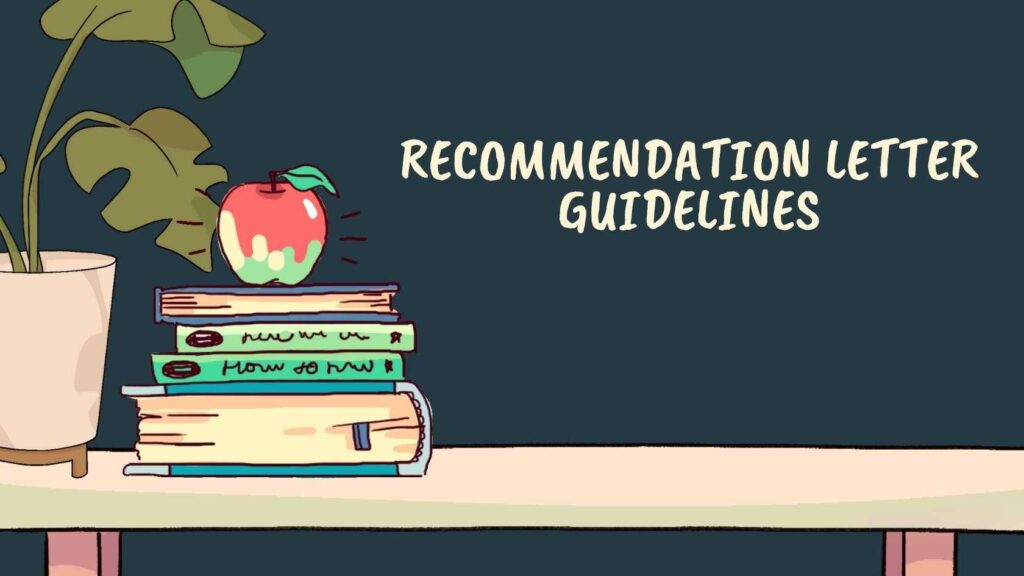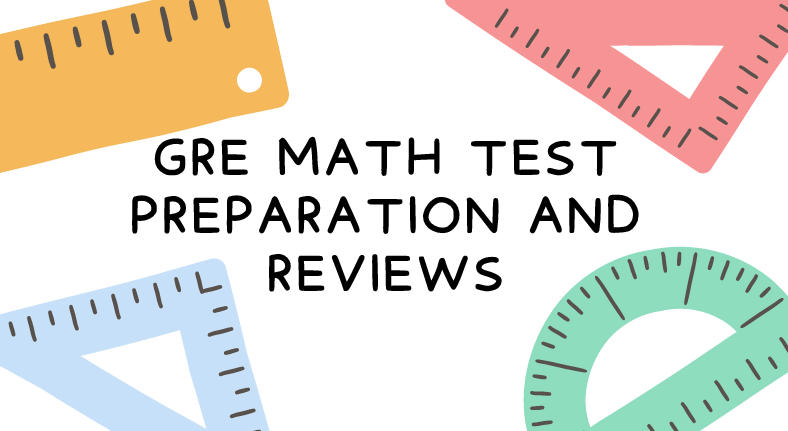Guidelines of Writing a recommendation letters
Recommendation letter should be written by the people who are going to sign the letter. Recently students have started writing recommendation letters by themselves which is not a good practice and will instead get you in trouble. Recommendation letters are taken very seriously by the admissions committee, they are read and re-read and then discussed. Admission decision can be taken or revoked based on your recommendation letters. Suggested layout of a recommendation letter is described below.
Step 1: Opening Paragraph
Opening should indicate general but not excessive warmth for example “I am writing this letter on behalf of XYZ” and follow is by some explanation about who you are and how you know the prospective student for whom the letter is being written, for how long do you know the student and in what capacity. Then go on to compare the student in terms of discipline and topical/thematic focus. For example, “XYZ was among the top young phycologists in our department and shows a great deal of promise.” Sufficient description of the research work should be provided, dissertation/thesis can also be used. The most important things a letter does is it provides a context on candidate’s research in awider scope.
Step 2: Second Paragraph
Second paragraph should continue and reassure that dissertation is almost done and that the book manuscript will be forthcoming. Pace of work and productivity are of paramount importance here. The main idea is to represent the candidate as a soon to be scholar rather than a graduate student to stir some interest.
- Evidence should be provided for the aspiring success of candidate in the profession. Grant support, awards, publications associated with the primary research should also be mentioned here. Conference activity can also be mentioned here.
- Next steps required in the research for the candidate should also be mentioned so that the committees feel reassured of commitment and long term goals.
- Specific attributes of the discipline for example the country of research, language fluency, technical skills and other similar things should also be mentioned.
- Teaching abilities of the candidates are also worth mentioning with specific examples if possible.
- Ability to assist in other tasks and not just the research work should also be mentioned here. As sometimes committee is concerned that research work will overwhelm the candidate and he will not be able to serve as a helping hand in other tasks in the department.
Step 3: Final Paragraph
- Should include a brief comment about his character and personality. Attributes like resourcefulness, responsibility, good humor, organization, energy, etc can be included.
- Last sentences should include the gist of the letter and final recommendation sentence with a sentence to contact the writer of the letter if any additional information or clearance is required.
Guide to writing reference letters:
A reference letter should be written by a referee, not by a student himself. We don’t recommend students to write recommendation letters by themselves. However, sometimes referees ask the students to write the recommendation letter and they simply sign it. For this scenario, here are a few key points that you need to keep in mind while writing:
NEVER ASK RECOMMENDATION LETTER FROM A TEACHER WHO IS LAZY OR DOES NOT CHECKS EMAIL OR IS NOT SERIOUS IN SIGNING YOUR REFERENCE LETTER
- At all costs avoid writing a reference letters by yourself, you can ask your friends or family members to write it for you. The writing style of your recommendation writing reference letters would match with the writing style of the personal statements/admission essays and it could be caught very easily undermining your whole application.
- In the recommendation letter, the most important aspect is what the recommender writes about you. If the recommender’s job title is good but he or she doesn’t know you well at a personal level, this would not result in a very good recommendation.
- You should network with your professors/ex-supervisors regularly so that by the time they need to write a recommendation letter for you, they may have spent ample time with you and may be able to represent you in a better way.
- Since you are applying for admission/scholarship, it is recommended to get reference letters from any academic person, whom you have worked with or they have taught you. If you can’t get all of the recommendation letters from academic personals, you can ask your current supervisor at work to write one for you. It is preferable not to have more than one recommendation letters from the people working outside academia.
- If you have extensive job experience and left academic life a long time ago, then it’s completely fine to get a recommendation letter from your supervisors with whom you have worked in the past, as they know you well.
- As mentioned earlier, it is a common practice in some institutions, especially in third-world countries, that the referee will ask you to write the letter and they will edit and sign it. Make sure you have it proof-read for any grammatical mistakes. Make sure the letter sounds like a professional masterpiece.
- Never write slang words.
- Keep it simple and in the flow. Do not use difficult words.
- Highlight any particular or unique achievements, work experience, and capabilities.
- Don’t write very generic reference letters. It is useless to have a letter, which sounds like this: “She is the most genius student in my class. She has always performed her duties diligently.” Such letters are useless. The letters should prove these things by giving examples of your character.
- For university admission, each university will ask for 2 or 3 recommendation letters. In this case, all 3 or 2 references should be different. THEY SHOULD NOT RESEMBLE OR HAVE SOMEWHAT SAME CONTENTS. Only content about your character can be repeated. Plagiarism in letters will not only lead to the rejection of your application but will definitely put a big question mark on all the applications of your fellow students in your institution.
- When you ask for a recommendation letter from a referee, you must provide him your CV, academic credentials, the specialization you wish to pursue, the strengths of the school you are applying, and a brief summary of your character traits due to which you feel that the selected school is the best match for you. This will help the referee and save his valuable time.
- Start with the introduction of the referee.
- How they know you and for how many years they have worked with you.
- If he or she taught you any course. Did they supervise you in projects? How much do they know you personally? Do they know about your emotional maturity and the management skills? Do they know how you overcame difficulties you faced during your academic career? Do they know how you cope with the deficiencies you had in past? Do they know what qualities in your personality suppress the negative aspects of your application? Do they know what exactly in your profile is the thing the admission committee is looking for? Now read point 12 again.
- Any project you have done with them or they supervised you in any work at a university
- What unique skill set the student has acquired?
- What are the strong points of your personality?
** You are a good public speaker, or organizer etc.
- Identify your week points, for example, you don’t have good writing skills and you want to improve it.
**Having week points in the letters makes your case strong
- Anywhere you should improve or work on?
- Make sure you couple your strengths with your weakness so that the person who is reading it understand you well
- Any unique set of skill you master under him or her?
- How well you did in the course they taught you?
- About your personality and nature or character?
- He or she is recommending you for admission or scholarship based on the achievements, which should relate to their program.
- Your only one good strong point can get you into the program
- Most importantly you have to realistic, truthful and optimistic
- NOT EVERYONE IS LOOKING FOR INTELLIGENT PEOPLE BUT HARDWORKING, DEDICATED, TRUTHFUL PEOPLE THAT CAN BE GROOMED INTO MUCH MORE.









